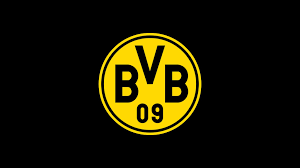Dortmund FC, officially known as Borussia Dortmund, is one of the most storied and celebrated football clubs in Germany and Europe. Known for its passionate fan base, rich history, and enduring rivalry with Bayern Munich, Dortmund FC has a significant impact on both German and international football. The club’s success on the pitch, coupled with its emphasis on youth development and community connection, makes it a unique institution in the world of sports kubet77.fan.
History of Dortmund FC
To understand the present-day significance of Dortmund FC, we must first delve into its rich history. Established in 1909 by a group of young men from Dortmund, the club witnessed various ups and downs throughout its journey. From its humble beginnings to becoming a powerhouse in European football, Borussia Dortmund’s narrative is both remarkable and inspiring https://kubet77.fan/.
The establishment of the club came at a time when football was just beginning to gain traction in Germany. Initially, the team played friendly matches, and it wasn’t until 1913 that they became members of the Western German Football Association. This shift marked the start of a competitive era for the club, culminating in their first major success—the Championship of the Westphalian League—in 1922.
Despite the challenges posed by World War II and the subsequent reformation of German football, Dortmund FC rose to prominence in the post-war years. The 1956 and 1963 seasons heralded the club’s first national championships, paving the way for its eventual participation in the inaugural Bundesliga season in 1963. During this period, the club began to develop its identity, characterized by an attacking style of play and a solid youth system.
In the late 1990s and early 2000s, Dortmund FC reached unprecedented heights under the management of Ottmar Hitzfeld. Winning back-to-back Bundesliga titles in 1995 and 1996, the club also secured the Champions League trophy in 1997. This victory not only solidified Dortmund’s position as one of Europe’s elite teams but also showcased its ability to compete on the grandest stage in club football.
The Rise and Fall of Dortmund in the 21st Century
As we trace the evolution of Dortmund FC into the 21st century, we observe a club that oscillated between triumph and adversity. Following their Champions League success, the early 2000s were marked by financial difficulties and poor performances. A necessary restructuring ensued, focusing on financial stability and player development.
This transition bore fruit in the late 2000s when Jürgen Klopp took charge. Under Klopp, Dortmund experienced a renaissance, clinching two consecutive Bundesliga titles (2010-2011 and 2011-2012) and reaching the Champions League final in 2013. Klopp’s managerial philosophy—emphasizing high-intensity pressing and youth integration—redefined the club’s playing style and fostered a strong connection with fans.
However, following Klopp’s departure in 2015, Dortmund faced another challenging period. While they remained competitive, inconsistent performances led to managerial changes and a search for a new identity. The appointment of Lucien Favre in 2018 marked a turning point, as he sought to restore the club’s attacking prowess and combat the dominance of Bayern Munich.
The Club’s Cultural Impact
Dortmund FC is more than just a successful football club; it is a cultural phenomenon that resonates deeply within its local community and beyond. The club’s iconic yellow-and-black colors symbolize unity and passion, capturing the essence of its fan base, known as ‘Die Schwarzgelben’ (The Black and Yellows).
One of the most distinctive aspects of Dortmund’s culture is its infamous stadium, Signal Iduna Park—formerly known as Westfalenstadion. With a capacity of over 81,000, it is one of Europe’s largest football venues and famous for its electrifying atmosphere. The ‘Yellow Wall,’ which refers to the standing terrace occupied by passionate fans, creates an intimidating environment for visiting teams and showcases the unwavering support that Dortmund FC enjoys.
Beyond the roaring crowds and vibrant matchday experiences, the club plays a pivotal role in the socio-economic fabric of Dortmund. Engaging with local charities, schools, and community organizations, Borussia Dortmund emphasizes its commitment to social responsibility, providing opportunities for underprivileged youth and fostering a sense of belonging.
